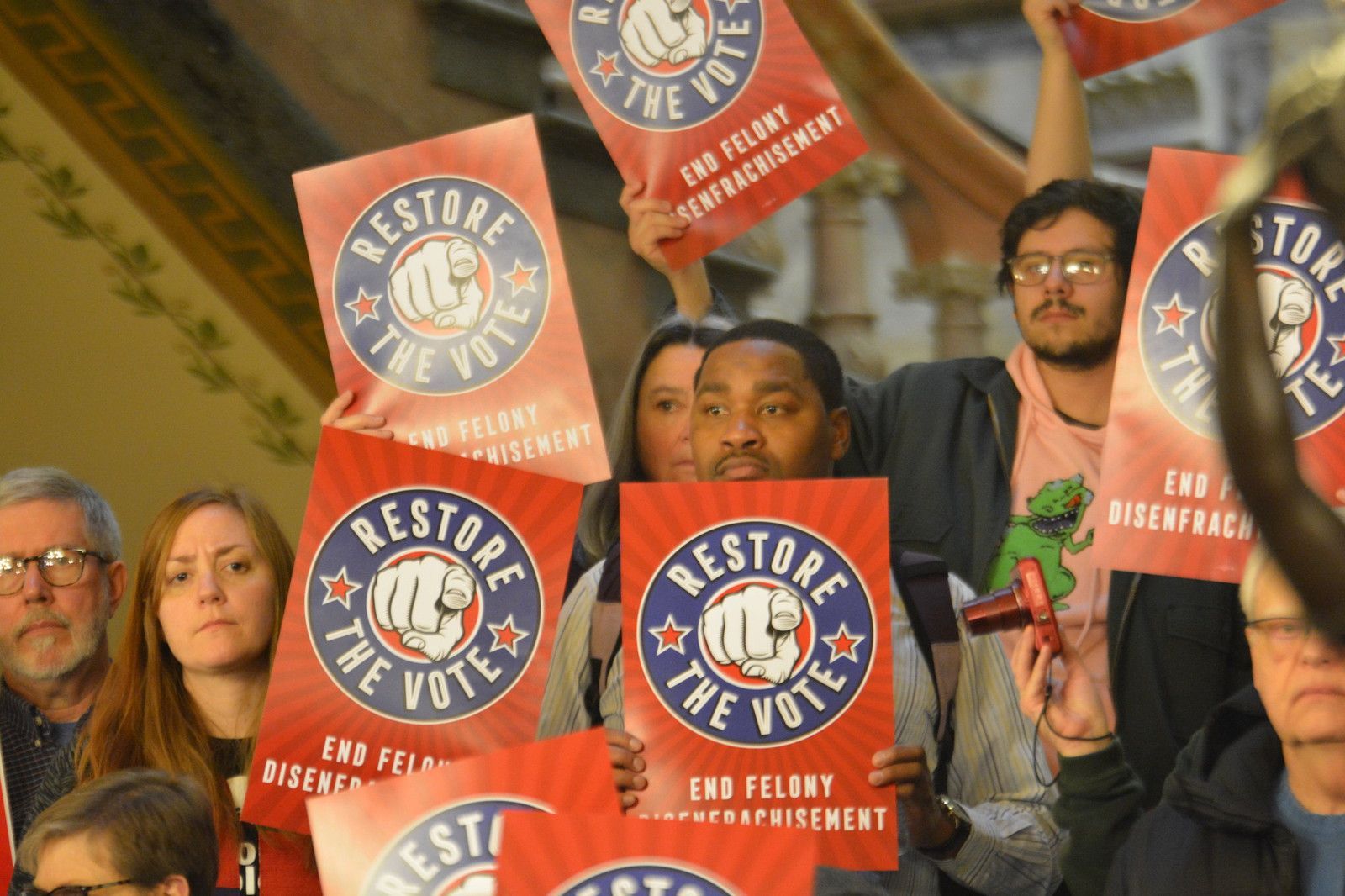Felony Disenfranchisement Should Concern All Americans
Nearly 4.6 million Americans impacted, mostly Black and living in poverty.

Voting is fundamental to our democracy. It is a right that should never be taken away. But today, nearly 4.6 million Americans are barred from exercising their right to vote because they have felony convictions. Most are Black and living in poverty.
Felony disenfranchisement is a policy of white supremacy. Coupled with more than 40 years of mass incarceration, felony disenfranchisement has silenced the African American’s political voice in ways that echo the “Black codes” of the 1860s and the Jim Crow laws of the 1950s. Today, one in 19 African American adults have lost their right to vote because of a felony conviction. That’s a disenfranchisement rate that’s 3.5 times that of all other Americans), according to The Sentencing Project.
The denial of this fundamental right is devastating and far reaching. Political engagement is quashed, and political strength is decimated. That has resulted in the intentional and perpetual powerlessness of people of color and the poor. This strategic incapacitation of people is driven by systemic racism, fuels continued poverty, and stymies notions of equal and human rights.
Not only does felony disenfranchisement contribute to the class and race bias in the electorate, it has generational impacts. As more and more African Americans and other people of color are disenfranchised, their children and grandchildren become less politically engaged and don’t vote. And their communities continue to lose out on needed resources.
In recent years, several states have made progressive reforms to address felony disenfranchisement. These changes are the direct result of organizing and advocacy by people who have experienced incarceration, their families, advocates, and community organizations.
A recent article on the Democracy Docket website, "Felony Disenfranchisement Should Concern All Americans," made note of some of these movements in the following states: North Carolina, Florida, Kentucky, Virginia and Tennessee. The article also notes recent legislation passed in Michigan, and signed into law by Gov. Gretchen Whitmer, that will see automatic voter registration for people when they are released from prison, as a model for other states to adopt.
Steps you can take to end the injustice of felony disenfranchisement:
1. Tell your governor: Restore voting rights to all!
Take action and tell your governor: The right to vote should never be taken away! Spread the word by sharing our action on social media.
2. Ask candidates if they support ending felony disenfranchisement.
During election season, you have a unique opportunity to get candidates on the record about issues that are important to you—and to influence their opinions. You can do this by seeking out a candidate for any public office; asking them where they stand on issues you care about, including ending felony disenfranchisement; and documenting their responses to share with the public.
Sample script;
“Here in [your state], many people are barred from exercising their right to vote because of involvement in the criminal legal system. I believe the right to vote should never be taken away. Will you protect our right to vote by working to end felony disenfranchisement?”










